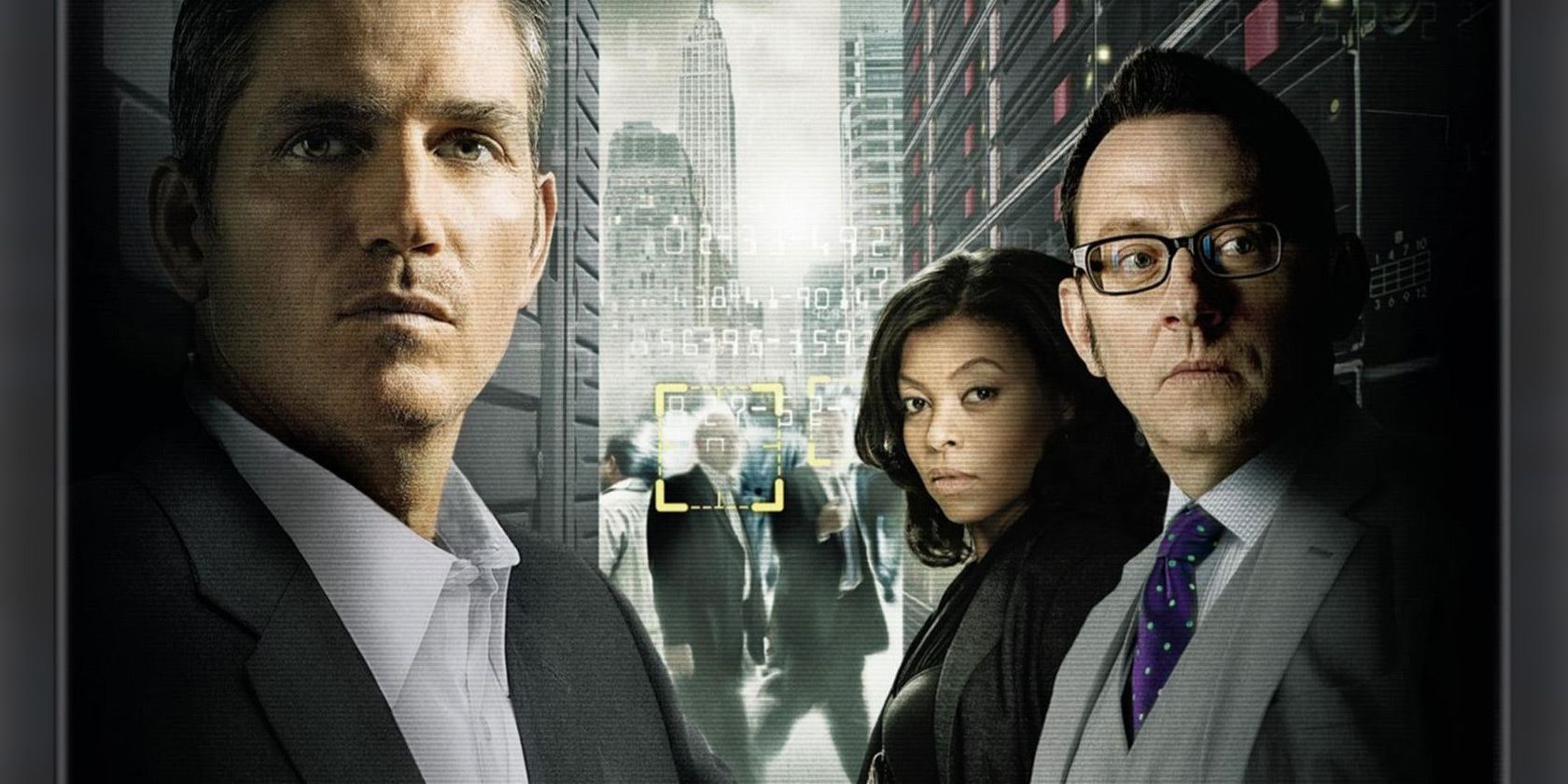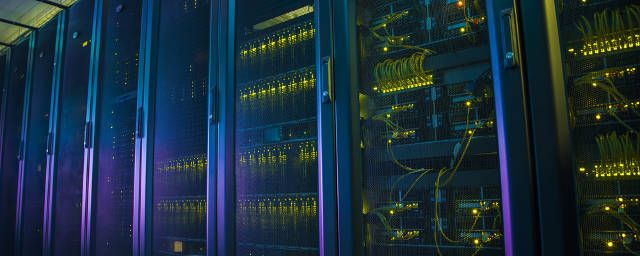With every year that passes, artificial intelligence shifts away from science fiction and more towards pure science. Some scientists think we should be scared of AI while others think that AI will make our lives better. The only guarantee is that artificial intelligence will happen, and most likely sooner rather than later.
So, the question is: what will artificial intelligence actually look like?
When we look at how Hollywood depicts AI, we see that there's no real consensus any more on what to expect. Robots are good, robots are evil, robots live in a gray zone of morality -- we've seen it all, and we'll see it all again. But if there's one common thread, it's that AI depictions have rarely been realistic.
Fortunately, we're starting to see a change in that on television, and the resulting shows have been phenomenal as a result.
AI: More Fantasy Than Science
Think back over how entertainment media has portrayed artificial intelligence. What you'll realize is that AI has mostly been in the realm of feature films, not television shows. Few TV series are built on AI as a premise; rather, AI tends to be tackled in one-off episodes here and there.
And when AI is portrayed, it's often fantastical instead of realistic. In a lot of ways, AI has become synonymous with "humans but not really," as if robots could ever become so human-like that we'd be unable to tell the difference. We haven't even beaten the Turing Test yet, so this kind of AI is likely set for the very distant future.
This kind of mismanagement of the AI concept has led to common tropes like being unable to tell AIs from humans, or AIs that want to be more human, or movies that highlight the "one difference" that will forever separate humans from AIs. All too far removed from reality to be plausible… yet.
But there are two standout examples of AI done right.
HAL 9000 in 2001: A Space Odyssey and Sonny in I, Robot. Whether you thought these movies were good or not is irrelevant. The fact is that they portrayed AI relatively well, which shouldn't be a surprise since both films were based on books written by renowned science fiction authors (Arthur C. Clarke and Isaac Asimov, respectively).
HAL 9000's capabilities were influenced by hypotheses and conjectures put forward by well-known computer scientists in the 1960s, whereas Sonny was based on Asimov's Three Laws of Robotics -- three realistic guidelines for keeping AIs in check. These are the kinds of AI we need to see more of in the entertainment industry.
Instead, we get far-fetched portrayals like the one in Her, where the protagonist falls in love with a gendered AI that's basically all human except that she has no physical body. The film is admittedly a romantic drama, and it hits a lot of emotional notes that make it a worthwhile film, but this is not what real AI looks like.
On the other hand, we have titles like Interstellar that truly redefine the cinema experience with honest explorations of sci-fi concepts like time travel and artificial intelligence. TARS, the AI entity in the film, has a few physical exaggerations that seem unrealistic, but the actual intelligence is rooted enough to feel like it could actually be real.
Battlestar Galactica
There aren't many examples of AI in TV, but one significant show that tackled the idea to some extent was the re-imagined Battlestar Galactica, which includes a primitive form of AI (robotic Cylon centurions) and an advanced form of AI (humanoid Cylons).
While Battlestar Galactica received acclaim for breaking past the traditional confines of sci-fi television -- by focusing more on character drama than nifty special effects -- we can't ignore the poor artificial intelligence constructs the show used.
Most of the show revolves around the notion of, "Cylons look like us!" and, "Who's a Cylon? Are you a Cylon?" Then once the identity of several Cylons was made known, the show revolved around the question of, "Are Cylons and humans actually any different?" Nothing new here, but thankfully the strength of the show's characters redeemed this brilliant sci-fi TV show.
Humans
The most recent attempt by TV to tackle artificial intelligence, at least at the time of writing, is Humans, a British-American remake of the Swedish show Real Humans.
Here we have a premise that we've seen time and time again: in the near future, human-like androids called "Synths" have become pervasively integrated into society. These Synths aren't exactly human, but they're close enough that the line is beginning to blur, and the writers have a lot of fun exploring the consequences.
In terms of breaking new ground, Humans is, unfortunately, a disappointment. We've heard all of these philosophical questions before, and the show doesn't offer any new or original answers -- but most of all, the actual AI is more fantastical than real. That being said, the show itself is fun and compelling to watch.
What this shows us is that most films and TV shows don't really know how to handle AI in a way that stays true to reality without sacrificing narrative tension. If it's too close to realistic then it borders on boring, so many writers extrapolate and push AI into fantasy territory -- because that's what people want to watch…
Person of Interest
This is why Person of Interest deserves high praise for the way it tackles the whole artificial intelligence concept. It's a high concept show that's heavy on action and conspiracies, but the lifeblood of the show is as realistic as it gets as far as Hollywood is concerned.
Warning: Mild spoilers coming up.
In the very first episode, we discover that a brilliant computer scientist named Mr. Finch has, in the aftermath of 9/11 and at the behest of the American government, built a massive artificial intelligence that digests all of the surveillance footage from around the country to predict acts of terror before they happen.
The AI is called The Machine and what's immediately striking is the way in which this artificial intelligence communicates with Mr. Finch: by producing the social security number of anyone who might be involved in a criminal act, except that number could belong to the victim or the perpetrator.
I'm paraphrasing the premise here, but I want to highlight this AI because it's the closest thing to "real" that we've seen on TV. It doesn't talk. It isn't omnipotent. But most importantly, it doesn't fit inside your pocket. Later on, we see that The Machine is an enormous cluster of high-end servers that barely fits within a warehouse complex.
That's what real AI would look like. No smartphone personalities that are "basically human". No human shell with an intelligence so complex that we can't tell it apart from other humans. The Machine is simply a super-powered supercomputer with extraordinary but plausible capabilities, and it never runs amok. It has a set of directives by which it must operate, and it does so.
Later on, The Machine does have its abilities expanded, but it never oversteps its bounds. It never breaks free from the directives that bind it. It is intelligent and it can communicate, but only through numbers, and it only communicates the information that it was meant to process.
Person of Interest exercises creative liberties here and there, but it always remembers the world that it built and stays true to the rules of its artificial intelligence. Is it any surprise to find that this series is overseen by Jonathan Nolan, brother to Christopher Nolan?
Black Mirror
More shows are starting to tackle AI from a more realistic angle. For example, Black Mirror, one of the best shows to hit the small screen in the past decade. This modernized Twilight Zone with a tech-based twist is like a short story anthology with each episode providing a standalone story and a brand new cast each time.
The show's fourth episode, titled "Be Right Back", involves a woman who loses her significant other in a car crash and subsequently purchases a built-to-order virtual AI that analyzes all of his online messages and social media profiles in order to emulate his personality and mannerisms. Essentially, she ends up talking to his ghost.
All of this is pretty far-fetched -- certainly more speculative than Person of Interest -- but the idea of using online data to rebuild one's personality pushes it a step into "this could actually happen" territory (especially because it's already happening).
The genius of Black Mirror is that it takes this episode even one step further, aiming to explore the eventual consequences of this kind of AI and the emotional fallout that could happen in a situation like this.
Artificial Intelligence Is Coming Soon
In a time when TV is full of shows that rely on technobabble and gibberish to push along cliched plots -- I'm looking at you, CSI and NCIS -- it's refreshing to see shows like Person of Interest and Black Mirror do justice to this wonderful area of technology that we're only just beginning to grasp.
They did it right and it was worth watching.
For those who are still skeptical about the advent of artificial intelligence, check out these robots that are painting, writing, and making music. Pretty soon, artificial intelligence will take over skilled jobs and who knows what'll happen next? Maybe we'll enter into an era of AI-driven dystopia. Maybe we won't.
Have you seen any realistic examples of artificial intelligence on TV? What do you think AI will look like in the future? Which movies or shows will be proven correct? Please share with us in the comments below!
Image Credits: Supercomputer Cluster by Regissercom via Shutterstock


